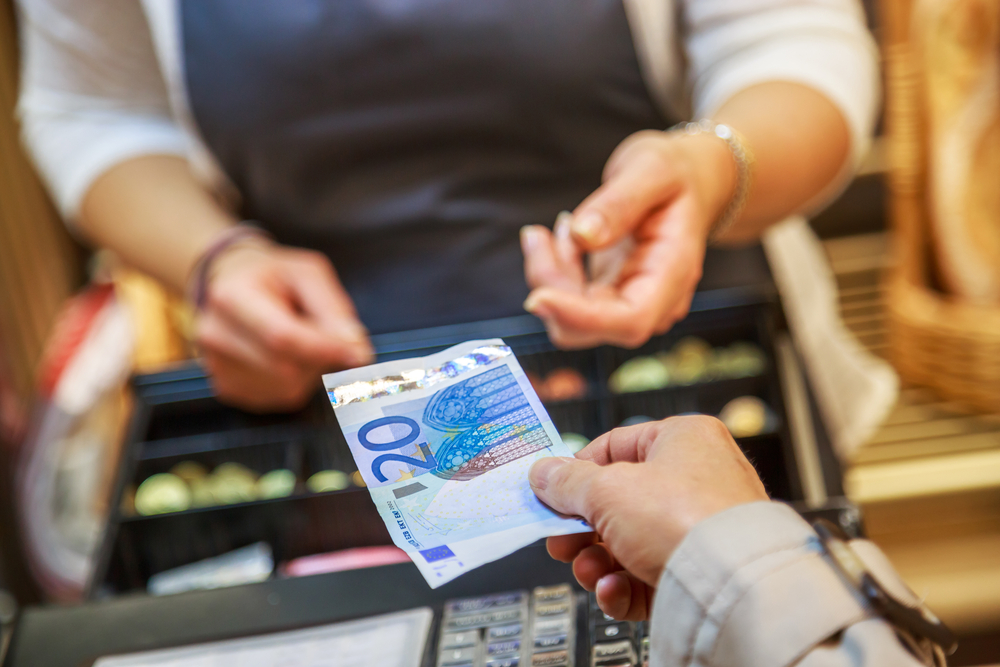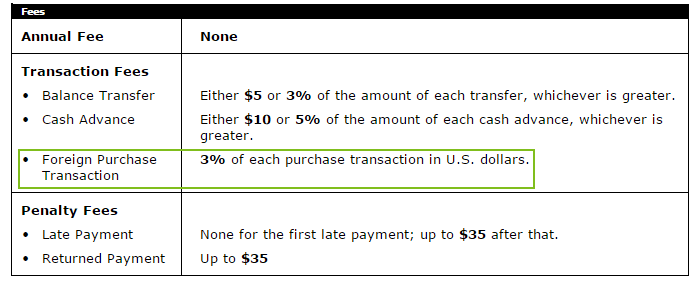

Perhaps more commonly, banks may just rely on customers not reading the fine print when signing up for an account. Misleading customers about the nature of fees like foreign transaction fees may be one way in which banks can maximize their profits. This means many customers may be charged these fees without their knowledge.įees such as foreign transaction fees are often hidden in contracts and information provided by the cardholder’s bank, according to Value Penguin.Ĭustomers have accused banks of using a range of fees to make money improperly off of their customers. sites.Ĭharges such as foreign transaction fees may be hard to spot. These cards can not only protect consumers from foreign transaction fees abroad, but they can help save money at home - they will also not incur a fee if they are used to make purchases from foreign sellers on U.S. If the traveler has the opportunity, they can seek a different card prior to travel that don’t charge these fees.Ĭhase, Capital One, and Discover offer foreign transaction fee-free cards, according to SmartAsset. This will help them shape the choices they make about when to withdraw money and use cash. While foreign transaction fees are common, it is possible to find card issuers who don’t use them.Ĭonsumers should familiarize themselves with the terms and conditions of the card they’ll be using while traveling in order to determine what fees they can expect. The most effective way to avoid a foreign transaction fee is to simply use cards that don’t charge those fees when purchasing items from a foreign source. In light of this development, purchases incur a foreign transaction fee if they merely pass through a foreign bank, as in the instances described above, even if they do not occur on foreign soil. Now, technological advances have allowed customers to more easily do business with companies around the world. Similarly, if they purchase airline tickets from a foreign airline, the purchase may incur foreign transaction fee.įoreign transaction fees are not what they used to be.Ībout a decade ago, only transactions that took place on foreign soil earned a foreign transaction fee, according to Value Penguin. If the consumer purchases an item on Amazon, but that item is being sold by someone in China, a fee may be charged. dollar, a fee is likely.Ī foreign transaction fee may also be charged if a consumer purchases an item from a foreign seller on a U.S. If the site they’re shopping on lists prices in a currency other than the U.S. This means if a consumer purchases an item from a company based in Germany, for example, they may be charged a fee even if they made the purchase from the U.S. When Do Foreign Transaction Fees Apply to Online Purchases?Ī foreign transaction fee is applied to any purchase made from a merchant based outside the U.S., according to WalletHub - specifically including online purchases. These fees cover the cost of converting foreign currency into dollars.įoreign transaction fees, on the other hand, are charged by the cardholder’s bank for transactions placed in a foreign currency, most often overseas, according to Investopedia.Ĭurrency conversion fees are often wrapped up within a larger foreign transaction fee. Are Foreign Transaction Fees the Same as Currency Conversion Fees?įoreign transaction fees and currency conversion fees, though their names sound similar, are not the same thing.Ĭurrency conversion fees are a type of charge tacked on to a transaction by a foreign merchant, though the amount of the fee is calculated by your card payment processor, according to Investopedia. International trips often cost a considerable amount of money, and each transaction may incur a fee.

One to 3 percent may not seem like a significant amount, but these kinds of fees can add up quickly. For example, Central Pacific Bank charges a 2 perent fee.Ī portion of the fee is given to the payment processor, such as Visa or Mastercard, while the rest goes to the entity that issued the card. Some card companies, such as Capital One and Discover, don’t charge a foreign transaction fee at all.Ī typical foreign transaction fee ranges from 1 percent and 3 percent of the purchase price. Exceptions may be made for purchases made in nearby countries, such as Canada or Mexico. These fees are often percentage-based and are common on most cards.

Ostensibly, this charge is meant to compensate the purchaser’s bank for converting the funds into a foreign currency.

Foreign transaction fees are placed on purchases made using a credit or debit card in a country other than the U.S.


 0 kommentar(er)
0 kommentar(er)
